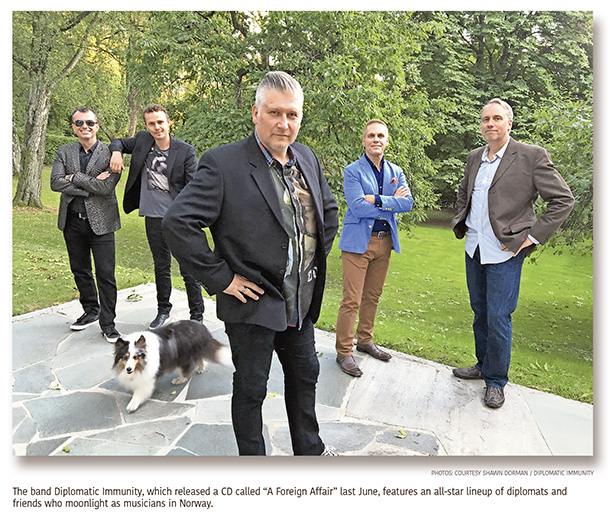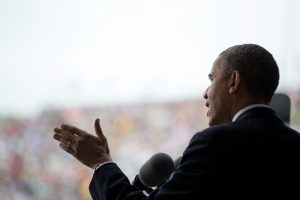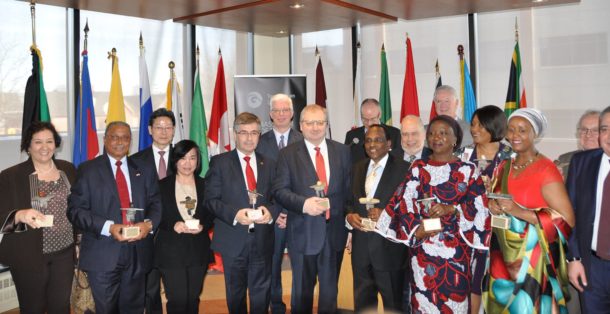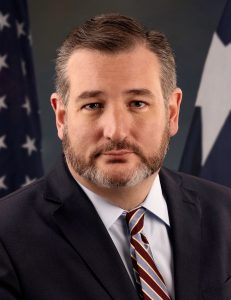Shawn Dorman, washdiplomat.com, March 1, 2019
On a quiet street in Oslo, the almost-famous international diplomatic band hauls their equipment out of the van to the backyard of a local couple (he’s American, she’s Norwegian) hosting a birthday bash. The sounds of rock ‘n’ roll ensue, from Norwegian classics like “Splitter Pine” to Neil Young’s “Rockin’ in the Free World” to “Sunset Moose,” an original song by the one American in the band, acting U.S. Ambassador to Norway and lead guitarist Jim DeHart. Diplomatic Immunity, which released its first (and only) CD “A Foreign Affair” last June, features an all-star lineup of diplomats and friends who moonlight as musicians: Canadian Ambassador to Norway Artur Wilczynski (drummer); U.S. Deputy Chief of Mission and Chargé d’Affaires to Norway Jim DeHart (guitarist/singer); Wilczynski’s Canadian partner, Randy Stocker (rhythm guitar/pianist); American Embassy Motor Pool Dispatcher Ørjan Tverbakk (bass player); and fitness trainer and musical theater actor-turned-lead singer Erik Skøld.
The band has played venues around Oslo over the last three years, including gigs at the local Hard Rock Café, a show for the Norwegian Parliament and Oslo Pride events. This is soft power public diplomacy [JB emphasis], grassroots style. It’s fun and it works. It’s also a rare note of harmony in a Washington political climate brimming with divisiveness and rancor. To learn more about this motley crew of musicians, friend of the band and former diplomat Shawn Dorman interviewed Diplomatic Immunity during a recent visit to Oslo. *This interview has been lightly edited and condensed for clarity. The band has played venues around Oslo over the last three years, including gigs at the local Hard Rock Café, a show for the Norwegian Parliament and Oslo Pride events. This is soft power public diplomacy, grassroots style. It’s fun and it works. It’s also a rare note of harmony in a Washington political climate brimming with divisiveness and rancor. To learn more about this motley crew of musicians, friend of the band and former diplomat Shawn Dorman interviewed Diplomatic Immunity during a recent visit to Oslo. Shawn Dorman: In one sentence, describe the band Diplomatic Immunity? DeHart: Diplomatic Immunity is a Norwegian-Canadian-American hard rock band based in Oslo, Norway, conducting public diplomacy at a very high volume.SD: How did you meet the other people in the band? How did the band form and why? DeHart: I met Artur and Randy at a horse race in Oslo and we hit it off — even more so when I learned that Artur played the drums and Randy the guitar and piano. We got together in Artur’s basement and then pulled in Ørjan, our embassy’s motor pool dispatcher. Ørjan had grown up in Oslo’s punk/thrash scene, had enough tattoos for all of us and played the meanest bass guitar I had ever heard. Unfortunately, we were all pretty useless as singers. Artur mentioned that his personal fitness trainer, Erik, aspired to a career in musical theater. Why not invite him over? And so we did, and the band was born.Wilczynski: I played in a band before we were posted to Norway. It was called the D-Flat-Dees, inspired by DFATD, the acronym of our Department of Foreign Affairs, Trade and Development. We had a lot of fun and managed to use the band to encourage charitable donations to the Government of Canada Charitable Workplace Campaign. When we arrived in Oslo, I actually took out an ad on a Facebook page dedicated to musicians. Little luck — it was at the horse race that it all came together.
The band has played venues around Oslo over the last three years, including gigs at the local Hard Rock Café, a show for the Norwegian Parliament and Oslo Pride events. This is soft power public diplomacy, grassroots style. It’s fun and it works. It’s also a rare note of harmony in a Washington political climate brimming with divisiveness and rancor. To learn more about this motley crew of musicians, friend of the band and former diplomat Shawn Dorman interviewed Diplomatic Immunity during a recent visit to Oslo. Shawn Dorman: In one sentence, describe the band Diplomatic Immunity? DeHart: Diplomatic Immunity is a Norwegian-Canadian-American hard rock band based in Oslo, Norway, conducting public diplomacy at a very high volume.SD: How did you meet the other people in the band? How did the band form and why? DeHart: I met Artur and Randy at a horse race in Oslo and we hit it off — even more so when I learned that Artur played the drums and Randy the guitar and piano. We got together in Artur’s basement and then pulled in Ørjan, our embassy’s motor pool dispatcher. Ørjan had grown up in Oslo’s punk/thrash scene, had enough tattoos for all of us and played the meanest bass guitar I had ever heard. Unfortunately, we were all pretty useless as singers. Artur mentioned that his personal fitness trainer, Erik, aspired to a career in musical theater. Why not invite him over? And so we did, and the band was born.Wilczynski: I played in a band before we were posted to Norway. It was called the D-Flat-Dees, inspired by DFATD, the acronym of our Department of Foreign Affairs, Trade and Development. We had a lot of fun and managed to use the band to encourage charitable donations to the Government of Canada Charitable Workplace Campaign. When we arrived in Oslo, I actually took out an ad on a Facebook page dedicated to musicians. Little luck — it was at the horse race that it all came together. SD: When did you start playing together? DeHart: This was late in 2015 as the dark Norwegian winter was settling in. By the way, I had real doubts about Erik, who had grown up on a different musical planet and had never even heard of bands like The Clash or White Stripes, let alone ever sung their songs. But after about five practices, he hit his stride and became our phenomenal front man.Wilczynski: It was practicing in the basement at the Canadian official residence in Oslo, trying to hammer out some tunes that all of us could play (or figure out). I am an amateur drummer. For me, this started out as a way to make new friends and try to improve my musical abilities. I was very intimidated by Ørjan and Jim’s abilities on their instruments. At first, I didn’t want to embarrass myself. In the end, it turned into so much more.SD: Where was your first gig? Wilczynski: A reporter with the national Norwegian broadcaster NRK was dating a colleague of mine at the embassy. She told him about me — a gay immigrant to Canada who also played in a rock band and was planning to play at Oslo LGBT Pride. He thought that was cool and decided it could be a good piece for television.We were originally going to play in the residence living room, but it was a spectacularly sunny day so we set everything up outside. We played “Seven Nation Army” by The White Stripes, “Handle with Care” by the Traveling Wilburys and “Ohio” by Neil Young. I still remember Ørjan saying something about how long it took for his band — back in the day — to even get a little media coverage, and here we were a bunch of diplomats and friends getting national media attention without having paid our dues or even having played for a real audience yet. That’s when we realized the potential of the band in shining a light on our countries and on the issues we cared about.DeHart: We did the whole thing backward, appearing on national TV before we even had enough songs to play a gig. When I asked the camera guy how we sounded, he said, “I’ve heard much worse.” I chose to take that as a compliment.SD: What was your “most diplomatic” show? Least diplomatic show? DeHart: We played inside the Norwegian Parliament, a venue with some serious gravitas, for a group of politicians and senior officials. Fortunately, the wine had been flowing for several hours before we took the stage.Wilczynski: Agree with Jim. It was very cool to be pushing our gear through the lobby of the Parliament building to set up in one of the committee rooms. I was supposed to have a conference call with one of our senior colleagues back at the Canadian Foreign Ministry. I said I couldn’t do it because my band was playing at Parliament. He said that was one of the best — and most original — excuses he ever heard for why someone should miss a call.
SD: When did you start playing together? DeHart: This was late in 2015 as the dark Norwegian winter was settling in. By the way, I had real doubts about Erik, who had grown up on a different musical planet and had never even heard of bands like The Clash or White Stripes, let alone ever sung their songs. But after about five practices, he hit his stride and became our phenomenal front man.Wilczynski: It was practicing in the basement at the Canadian official residence in Oslo, trying to hammer out some tunes that all of us could play (or figure out). I am an amateur drummer. For me, this started out as a way to make new friends and try to improve my musical abilities. I was very intimidated by Ørjan and Jim’s abilities on their instruments. At first, I didn’t want to embarrass myself. In the end, it turned into so much more.SD: Where was your first gig? Wilczynski: A reporter with the national Norwegian broadcaster NRK was dating a colleague of mine at the embassy. She told him about me — a gay immigrant to Canada who also played in a rock band and was planning to play at Oslo LGBT Pride. He thought that was cool and decided it could be a good piece for television.We were originally going to play in the residence living room, but it was a spectacularly sunny day so we set everything up outside. We played “Seven Nation Army” by The White Stripes, “Handle with Care” by the Traveling Wilburys and “Ohio” by Neil Young. I still remember Ørjan saying something about how long it took for his band — back in the day — to even get a little media coverage, and here we were a bunch of diplomats and friends getting national media attention without having paid our dues or even having played for a real audience yet. That’s when we realized the potential of the band in shining a light on our countries and on the issues we cared about.DeHart: We did the whole thing backward, appearing on national TV before we even had enough songs to play a gig. When I asked the camera guy how we sounded, he said, “I’ve heard much worse.” I chose to take that as a compliment.SD: What was your “most diplomatic” show? Least diplomatic show? DeHart: We played inside the Norwegian Parliament, a venue with some serious gravitas, for a group of politicians and senior officials. Fortunately, the wine had been flowing for several hours before we took the stage.Wilczynski: Agree with Jim. It was very cool to be pushing our gear through the lobby of the Parliament building to set up in one of the committee rooms. I was supposed to have a conference call with one of our senior colleagues back at the Canadian Foreign Ministry. I said I couldn’t do it because my band was playing at Parliament. He said that was one of the best — and most original — excuses he ever heard for why someone should miss a call. As for least diplomatic show, well, that wouldn’t be very diplomatic of us to say…. All of them had an effect on the audiences that saw us. Regardless of our level of ability, the fact that diplomats would play songs like “London Calling” by The Clash or “Rockin’ in the Free World” by Neil Young broke the stuffy stereotype many people had about diplomats and helped shape an image of Canadian and American officials that made us more approachable and fun.SD: What was your favorite show and why? Worst show and why?Skøld: I loved playing every single gig. All of them have had great moments where we as a band have connected with the audience and the music has filled the room and our bodies. Herr Nilsen, Hard Rock Café, Pride at the residence and Pride Park, Frognerseteren, the U.K. residence.DeHart: The Herr Nilsen Jazz Club will always be my favorite Oslo venue. I think the three shows we played there were among our very best. We never had a bad show, though we did have some bad moments. On the Bear Stage at Oslo Pride, my guitar got bumped and went dramatically out of tune, leading to the worst guitar solo in the history of “Hotel California.”Wilczynski: Loved the shows at Herr Nilsen, but the shows that I will remember most were the ones we did for Pride both at the [Canadian official] residence and on the Bear Stage. For me, they were an opportunity to use music to convey a message of equality and inclusion. They gave me as an ambassador the platform to speak about issues that I and my government care about. As I mentioned, musically, I am the least talented of the five of us. The opportunity to play drums on a big stage with hundreds of people in front of us are moments I will never forget.SD: Do you have groupies? Who are they?Wilczynski: I think some of our ambassadorial colleagues were among our most devoted fans. They came every time. We were asked to play at the farewell reception for our close friend, super-fan U.K. Ambassador to Norway Sarah Gillett. I was so thrilled that she asked. We gave her our CD and a T-shirt from the band, and I will never forget her dancing in a Diplomatic Immunity T-shirt while we played “London Calling” in a fancy reception room in the U.K. official residence in Oslo. It said a lot about the power of doing something different, unconventional and interesting. It brings people together.DeHart: We have some devout fans, including Egypt’s ambassador to Norway, who sent us a list of more than 50 songs she insisted we had to learn.SD: That song, “Splitter Pine,” how can I get that song out of my head? DeHart: You can’t, and that’s OK. That Norwegian classic was designed to form a natural bulwark between your brain and any song by Céline Dion, and it works.Wilczynski: Jim, don’t bring Céline Dion into it! Céline is an icon — but it’s OK if she keeps playing in Vegas! By the way, I still have no idea what that song is about. All I know is that when Norwegians hear it after a couple of beers, they can’t help but sing along and jump up and down repeatedly.
As for least diplomatic show, well, that wouldn’t be very diplomatic of us to say…. All of them had an effect on the audiences that saw us. Regardless of our level of ability, the fact that diplomats would play songs like “London Calling” by The Clash or “Rockin’ in the Free World” by Neil Young broke the stuffy stereotype many people had about diplomats and helped shape an image of Canadian and American officials that made us more approachable and fun.SD: What was your favorite show and why? Worst show and why?Skøld: I loved playing every single gig. All of them have had great moments where we as a band have connected with the audience and the music has filled the room and our bodies. Herr Nilsen, Hard Rock Café, Pride at the residence and Pride Park, Frognerseteren, the U.K. residence.DeHart: The Herr Nilsen Jazz Club will always be my favorite Oslo venue. I think the three shows we played there were among our very best. We never had a bad show, though we did have some bad moments. On the Bear Stage at Oslo Pride, my guitar got bumped and went dramatically out of tune, leading to the worst guitar solo in the history of “Hotel California.”Wilczynski: Loved the shows at Herr Nilsen, but the shows that I will remember most were the ones we did for Pride both at the [Canadian official] residence and on the Bear Stage. For me, they were an opportunity to use music to convey a message of equality and inclusion. They gave me as an ambassador the platform to speak about issues that I and my government care about. As I mentioned, musically, I am the least talented of the five of us. The opportunity to play drums on a big stage with hundreds of people in front of us are moments I will never forget.SD: Do you have groupies? Who are they?Wilczynski: I think some of our ambassadorial colleagues were among our most devoted fans. They came every time. We were asked to play at the farewell reception for our close friend, super-fan U.K. Ambassador to Norway Sarah Gillett. I was so thrilled that she asked. We gave her our CD and a T-shirt from the band, and I will never forget her dancing in a Diplomatic Immunity T-shirt while we played “London Calling” in a fancy reception room in the U.K. official residence in Oslo. It said a lot about the power of doing something different, unconventional and interesting. It brings people together.DeHart: We have some devout fans, including Egypt’s ambassador to Norway, who sent us a list of more than 50 songs she insisted we had to learn.SD: That song, “Splitter Pine,” how can I get that song out of my head? DeHart: You can’t, and that’s OK. That Norwegian classic was designed to form a natural bulwark between your brain and any song by Céline Dion, and it works.Wilczynski: Jim, don’t bring Céline Dion into it! Céline is an icon — but it’s OK if she keeps playing in Vegas! By the way, I still have no idea what that song is about. All I know is that when Norwegians hear it after a couple of beers, they can’t help but sing along and jump up and down repeatedly. SD: Who has previously been in another band? Please tell us about it. DeHart: Just about everywhere I’ve served, I’ve managed to be in a band. Eighteen years ago, I put a notice on the State Department bulletin board and fellow FSOs Conrad Tribble and Benjamin Weber answered the call. We formed a rock group called Rogue State and were sailing along until our drummer decided we were terrible and dumped us on the eve of our first big gig. Later, in Afghanistan, I was in Danger Pay, which was more or less the house rock band at the U.S. Embassy Kabul’s Duck and Cover bar. Those were some pretty wild shows. With audiences starved for entertainment, PSP [priority staffing] posts make for great gigs!Skøld: Diplomatic Immunity is the first band I play in. But I have played in different musical theater shows all across Norway, such as “The Sound of Music,” “The Wizard of Oz,” “Annie” and “Pippi Langstrømpe.” In my younger years I also did a tour in Beijing to present Western popular music for Chinese high school students.SD: How does your band promote diplomacy and good relations between nations and cultures? Wilczynski: The band broke stereotypes. It portrayed a different image of what diplomats do and gave a chance for our personalities to come out. People are more interested in connecting on a personal level and music is incredibly effective at doing that. The band opened doors. It opened minds about diplomats and helped us connect to thousands of Norwegians that we wouldn’t have engaged with without the band. As Jim said, the band was a conversation starter that helped us bridge to whatever issue we felt was important. For me, it was an instrument to talk about diversity and inclusion. It was a way to project, through my participation, Canada as a fun and inclusive place. Based on the feedback we have received, it worked.DeHart: The average Norwegian is not necessarily interested in our policy messages. Often, we have to hook them with something of human interest, and the band does that. It grabs their attention and then we have their ear for more serious conversations — for example, in connection with Oslo Pride. Also, it’s about humanizing ourselves. A lot of folks seem to assume that diplomats are a staid bunch, so when we rock out, they’re genuinely puzzled, which leads to interest. The band has opened a lot of doors for Artur and me, raising our profiles across the government and civil society. After all, even senior leaders like to rock out and have fun.
SD: Who has previously been in another band? Please tell us about it. DeHart: Just about everywhere I’ve served, I’ve managed to be in a band. Eighteen years ago, I put a notice on the State Department bulletin board and fellow FSOs Conrad Tribble and Benjamin Weber answered the call. We formed a rock group called Rogue State and were sailing along until our drummer decided we were terrible and dumped us on the eve of our first big gig. Later, in Afghanistan, I was in Danger Pay, which was more or less the house rock band at the U.S. Embassy Kabul’s Duck and Cover bar. Those were some pretty wild shows. With audiences starved for entertainment, PSP [priority staffing] posts make for great gigs!Skøld: Diplomatic Immunity is the first band I play in. But I have played in different musical theater shows all across Norway, such as “The Sound of Music,” “The Wizard of Oz,” “Annie” and “Pippi Langstrømpe.” In my younger years I also did a tour in Beijing to present Western popular music for Chinese high school students.SD: How does your band promote diplomacy and good relations between nations and cultures? Wilczynski: The band broke stereotypes. It portrayed a different image of what diplomats do and gave a chance for our personalities to come out. People are more interested in connecting on a personal level and music is incredibly effective at doing that. The band opened doors. It opened minds about diplomats and helped us connect to thousands of Norwegians that we wouldn’t have engaged with without the band. As Jim said, the band was a conversation starter that helped us bridge to whatever issue we felt was important. For me, it was an instrument to talk about diversity and inclusion. It was a way to project, through my participation, Canada as a fun and inclusive place. Based on the feedback we have received, it worked.DeHart: The average Norwegian is not necessarily interested in our policy messages. Often, we have to hook them with something of human interest, and the band does that. It grabs their attention and then we have their ear for more serious conversations — for example, in connection with Oslo Pride. Also, it’s about humanizing ourselves. A lot of folks seem to assume that diplomats are a staid bunch, so when we rock out, they’re genuinely puzzled, which leads to interest. The band has opened a lot of doors for Artur and me, raising our profiles across the government and civil society. After all, even senior leaders like to rock out and have fun. Skøld: Music is very personal and something many people can connect to. People seem to open up when they hear good, fun music. The band members’ different backgrounds also give a message about teamwork and partnership across national borders and cultures.SD: As Jim heads to Kabul, and Artur and Randy back to Ottawa, what will be the legacy of Diplomatic Immunity in Oslo? Skøld: Teamwork, music enjoyment and zest for life.DeHart: Some spilled beer, though the floors at the Herr Nilsen are mopped pretty regularly.Wilczynski: I think we did change the way that diplomats are perceived in Norway. I think that we have created expectations that diplomats will be more accessible, fun and a little less elitist than our reputation has us being.SD: What else should we know about Diplomatic Immunity? Wilczynski: We will be hoping for a reunion at some point. You never know when or where. We have become good friends through this band. I will cherish that part of the experience perhaps more than anything.DeHart: We just released a CD of five original songs called “A Foreign Affair.” You can stream it for free on Bandcamp.com. But to get the dirt on all the backstage drama, I’m afraid you’ll have to wait for a future episode of VH1’s “Behind the Music.”
Skøld: Music is very personal and something many people can connect to. People seem to open up when they hear good, fun music. The band members’ different backgrounds also give a message about teamwork and partnership across national borders and cultures.SD: As Jim heads to Kabul, and Artur and Randy back to Ottawa, what will be the legacy of Diplomatic Immunity in Oslo? Skøld: Teamwork, music enjoyment and zest for life.DeHart: Some spilled beer, though the floors at the Herr Nilsen are mopped pretty regularly.Wilczynski: I think we did change the way that diplomats are perceived in Norway. I think that we have created expectations that diplomats will be more accessible, fun and a little less elitist than our reputation has us being.SD: What else should we know about Diplomatic Immunity? Wilczynski: We will be hoping for a reunion at some point. You never know when or where. We have become good friends through this band. I will cherish that part of the experience perhaps more than anything.DeHart: We just released a CD of five original songs called “A Foreign Affair.” You can stream it for free on Bandcamp.com. But to get the dirt on all the backstage drama, I’m afraid you’ll have to wait for a future episode of VH1’s “Behind the Music.”
About the Author
Shawn Dorman is a former U.S. diplomat who now serves as editor in chief of The Foreign Service JournalOriginal Article







